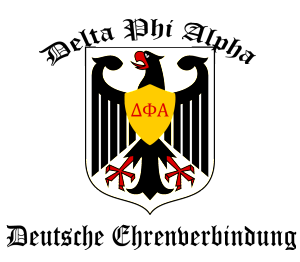
Deutsch • German
Master German, Expand Horizons
Through immersive language study, students gain access to Germany’s rich heritage in literature, music, philosophy, and science—engaging with the works of Goethe, Bach, Kant, and others in their original form. German is a vital language in global industry, particularly in engineering, automotive, finance, and technology sectors, and fluency can significantly enhance international career prospects. In addition, Germany’s renowned higher education system and its role as a leader in European innovation, sustainability, and diplomacy make German an essential tool for students pursuing global academic and professional goals.
World Languages and Cultures, B.A.
Discover the power of language at Miami University. Our World Languages and Cultures BA blends modern languages, global cultures, and real-world skills to help you thrive in a connected world. Whether you're starting fresh or continuing your studies, this languages degree opens doors—from Oxford to across the globe.
Explore the MajorWhy Learn German?
Language for Global Business Careers
Corporate and Economic Connections
Gateway to STEM and Innovation
Minor in German
Gain language proficiency and cultural insight while preparing for global careers through Miami University’s German Minor.
Beyond the Classroom
Learning Outcomes
- Employ correct and appropriate grammar, vocabulary, syntax, and style to describe personalities, events, and ideas in the past, present, future, and hypothetical situations;
- Contextualize cultural information in a manner that reveals familiarity with past and present trends and differences between one’s native culture and those of the German-speaking world;
- Construct a persuasive argument intelligible to native speakers of the language;
- Locate, analyze, evaluate, summarize, integrate, synthesize, and cite information and ideas from sources typically used in German news media, scholarly publications, and professional types of writing in German;
- Apply the grammatical, rhetorical, and cultural competencies outlined above to the types of writing typically used in the graduates’ intended professions
Contact the Department

Department of German, Russian, Asian, and Middle Eastern Languages and Cultures
Irvin Hall 172
400 East Spring Street
Oxford, OH 45056-3645
United States
(513) 529-2526
General Inquiries: gramelac@MiamiOH.edu

